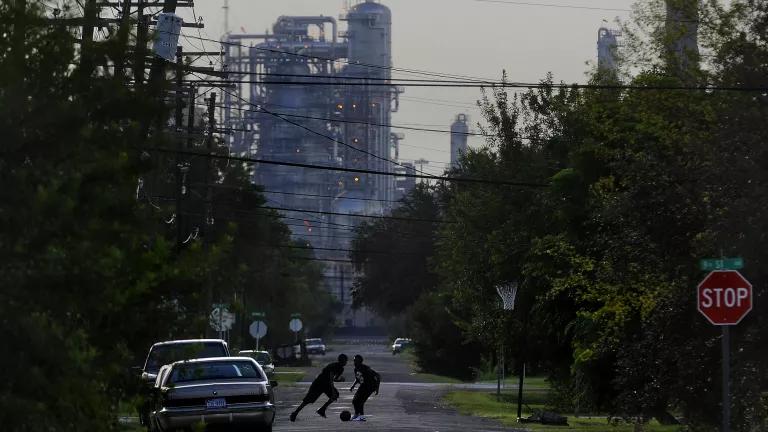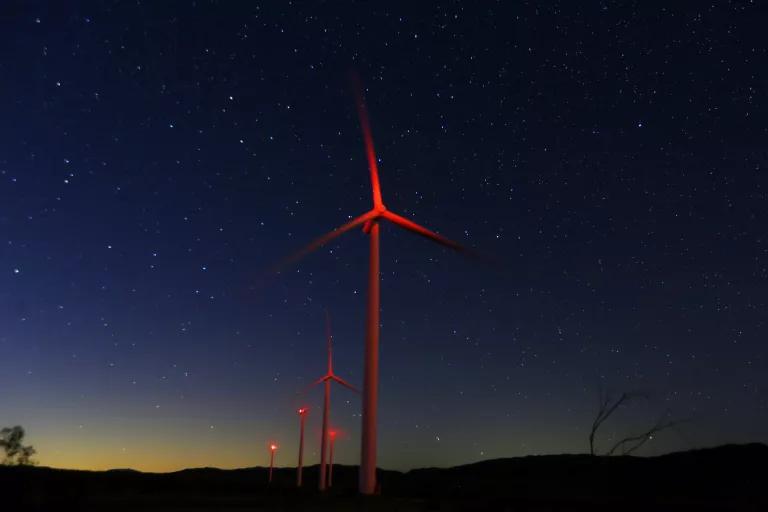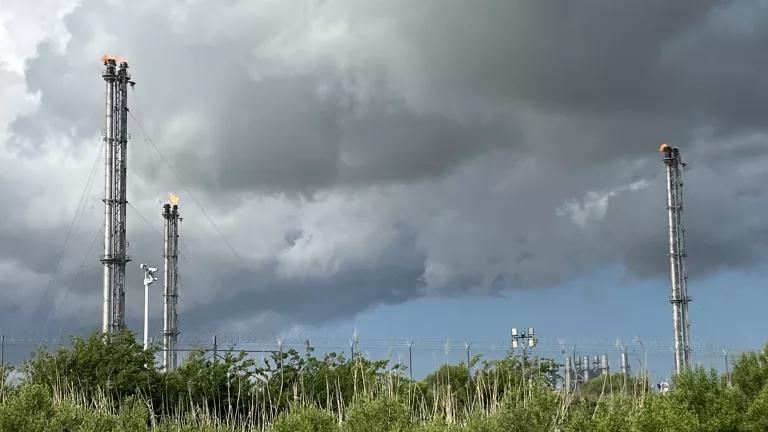Advancing Bold Equitable and Just Climate Action
NRDC joins a national platform that fuses economic, racial, and environmental justice goals into a single advocacy framework.

Port Arthur, Texas
Michael S. Williamson/The Washington Post via Getty Images
In our relentless fight for cleaner air, cleaner water, habitat preservation, and climate action, it has become unambiguously clear that communities of color, tribal communities, and low-income communities bear a disproportionate share of our collective environmental burden.
There’s a long and clear pattern of locating our dirtiest industrial facilities in communities that lack the wealth and political power to push back. In these overburdened areas, residents must deal daily with air that chokes them, water that sickens them, and other forms of pollution that pose a severe and near-constant threat to their health. And while storms, floods, and other climate disasters can strike anywhere, these communities get hit hardest and have the least resources to recover. As the atmosphere warms and climate change exacerbates a wide range of social and environmental problems, the members of these communities find themselves especially, and unjustly, vulnerable.
Historically, major environmental groups—including NRDC—have not done enough to bring frontline communities into the process when we’re writing reports, developing policies, and fighting legal battles.

Water in Newark, New Jersey needs to be filtered before use as the city is experiencing elevated lead levels in the water supply.
Today, a long-overdue step is being taken to redress this imbalance and to significantly strengthen the larger climate movement, a step that will put the voices, insights, and ideas emanating from frontline communities at the forefront and embed environmental justice into our core solution set.
The Equitable and Just National Climate Platform, released today, outlines the goals of a new national climate agenda that fuses economic, racial, and environmental justice into a single advocacy framework.
It represents an unprecedented collaboration between large national environmental groups such as NRDC and local environmental justice groups from all across the country. The platform heralds a new path forward in our federal climate advocacy, designed to reshape our concept of climate action, by showing America and the world that social problems we have historically tended to think of as discrete—poverty, soaring illness rates, and lack of economic opportunity, to name just a few—are linked inextricably to misguided actions that have turned many communities into hazard zones. Of course, environmental justice advocates have named these links for decades, but national environmental groups have not always followed suit.
For any climate plan to succeed, it must give top priority to the communities already overburdened by toxic pollution and closest to the harms of climate change. For as long as we’ve been burning fossil fuels, systemic inequalities have forced communities of color, tribal communities, and low-income communities to bear the brunt of that industrial pollution and suffer its cumulative effects over generations.
The Equitable and Just National Climate Platform embraces as its inviolable guiding idea that “all communities have a right to live free from exposure to dangerous toxic pollution in their soil as well as in the air they breathe, the food they eat, and the water they drink.”
The platform signifies a commitment not only to fighting environmental injustice but also to constructing and nurturing an alternative to the unsustainable status quo: a new advocacy that melds emissions reduction with thoughtful redevelopment, such that environmental progress and economic progress are one and the same and moving us toward a more equitable society.
Together, in this new effort, we will fight for greater access to affordable, reliable, clean energy for people in all neighborhoods and at all socioeconomic levels. We will call for governments to boost their investment in zero-emissions transportation, promoting responsible transit-oriented development and opening up cities and entire regions for those in search of jobs, education, health care, and services. And we will advocate for the building of safe and affordable energy-efficient housing and resilient infrastructure.

Ocotillo, California
I am extraordinarily excited by this historic coming together of groups big and small, national and local. The architects of the Equitable and Just National Climate Platform hail from all over the country—from the Midwest to the Northeast to the deep South to the desert Southwest. They bring with them a diversity of experience and expertise that will make our shared work stronger and more effective by several degrees of magnitude.
With our ideas pooled and our missions aligned, we can reduce all forms of pollution that imperil our health and communities—and do so in ways that spread the benefits to all communities, in accordance with fundamental principles of fairness, justice, and democracy.
And by working together, unified under this shared vision of a just and equitable future for all, we can slow and stop the most dangerous impacts of climate change, protecting our kids and communities today and tomorrow.



